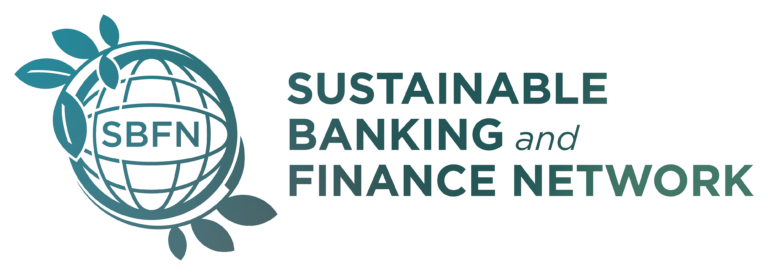Green Finance Supply and Demand Dynamics in Times of COVID
August 4, 2020 | 1 hr 14 mins |
View on YouTube
This featured SBN Member Webinar presented contributions from SBN, Bangladesh Bank (a fellow SBN member), and the Kenya Climate Innovation Center, which incubates green economy entrepreneurs and innovators. The discussion covered how the pandemic was shaping the sustainable finance agenda, and the “COVID Kairos” moment in emerging markets, offering high-value opportunities to rebuild greener economies.
The session was moderated by Nuru Mugambi, Kenya Bankers Association (KBA) Director of Public Affairs, who has led the KBA Sustainable Finance Initiative since 2012.
This event was part of the KBA’s weekly COVID-19 Insights Webinar Series.
The program commenced in April 2020 and covers how the Coronavirus (COVID-19) pandemic has impacted banks and the economy.
The goal of the sessions is to inform and build the capacity to navigate the COVID environment amongst the KBA member banks, spanning 45 banks and microfinance institutions.
Speakers:
Asif Iqbal, Joint Director, Bank of Bangladesh
Edward Mungai, CEO, Kenya Climate Innovation Centre
Louise Gardiner, Coordinator of SBN African region & Green Bond Working Group
Nuru Mugambi, Director, Kenya Bankers Association
Presentations:
Creating national enabling frameworks for sustainable finance – Trends from SBN countries, by Louise Gardiner
Kenya Climate Innovation Center and its programs, by Edward Mungai
Event highlights:
Ms. Gardiner shared initiatives and insights from many of SBN’s member institutions in emerging markets – both central banks and banking associations – that were targeting green, social, and sustainability-focused finance strategies and instruments to respond to the pandemic and rebuild resilience.
She also included highlights from SBN’s latest report on innovation and the business case for sustainable finance in low-income countries: Necessary Ambition: How Low-Income Countries Are Adopting Sustainable Finance to Address Poverty, Climate Change, and Other Urgent Challenges.
Mr. Mungai covered trends within the Green Economy in so far as how COVID has disrupted climate change innovators, and at the same time, created new opportunities. His presentation included brief case studies of green economy entrepreneurs and innovators who were disrupting their sectors. KCIC funds, incubates, and provides technical assistance for entrepreneurs and start-ups developing innovative solutions in energy, water, and agribusiness to address climate change challenges. So far, the Center has deployed $195,000 in early-stage finance, which has generated $16,789,730 in revenues and 2,842 jobs across the country. The firms supported by the Center have collectively reduced carbon emissions by 414,920 tons.
Mr. Iqbal shared the Bangladesh experience, providing participants with a regulators’ perspective on why banks needed to keep Green Finance activity going, despite COVID. He touched on the necessity of the “Build Back Better” approach, introduced by Japan in 2015 to the UN General Assembly as a strategy to rebuild nations after natural disasters to create more resilient economies. He also covered the Bangladesh sustainable finance journey and how the regulator viewed the role of social and environmental risk management as a tool to promote financial sector stability.
